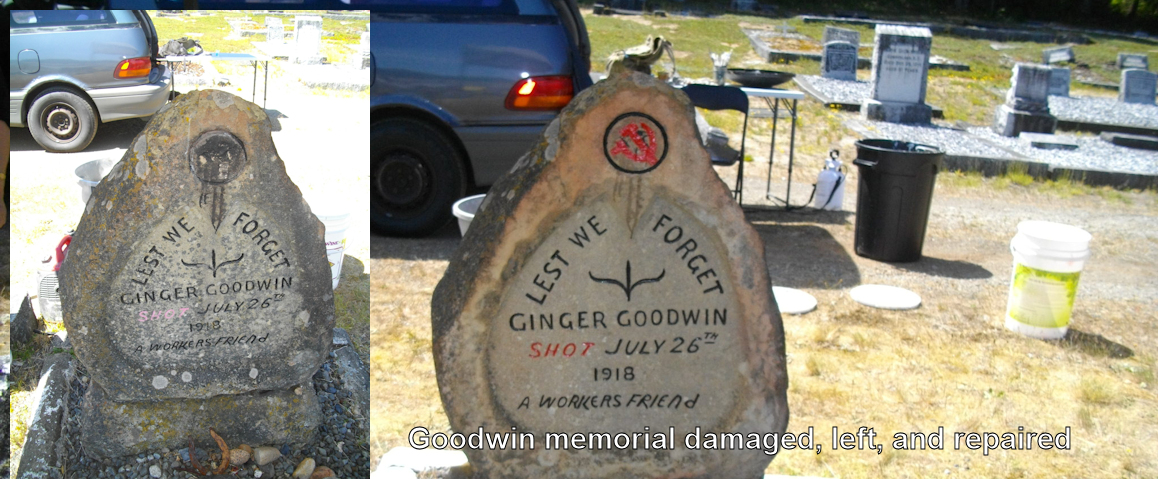Labour leader murdered by police in 1918
In an apparent act of far-right vandalism, the gravestone of labour leader Albert “Ginger” Goodwin has been defaced in Cumberland, BC. The grave, which is the site of an annual memorial vigil each June, had a hammer and sickle ornament chiseled off of it.
Goodwin was a migrant coal miner who moved to Vancouver Island from England in 1910 to work in the Cumberland mines. In response to the atrocious and dangerous working conditions, he became a key union organizer among the coal miners, and helped lead the Coal Miners’ Strike of 1912-1914. Following that strike, Goodwin was among hundreds of miners who were refused employment due to union activity. Undaunted, he continued his union and socialist activity, and in 1917 was elected Treasurer of the Trade Mill and Smelters Union and Vice-President of the BC Federation of Labour.
During World War One, Goodwin’s ill health – a result of working conditions in the mines – allowed him to avoid conscription. In response to his continuing union activity, however, he was declared fit for duty and ordered to appear for enlistment. An anti-war advocate, Goodwin chose instead to hide in the wilderness of Cumberland, living with other war resisters who survived through support and generosity of local labour and community members.
In July 1918, a special detachment of Dominion Police (predecessor of the RCMP) arrived in Cumberland to track down the war resisters. Goodwin was shot and killed in an act of violence that the labour movement has always insisted was cold-blooded murder.
The response to Goodwin’s murder was working class anger throughout the province; his funeral procession was over a mile long. His death sparked the Vancouver General Strike in August 1918, a one-day political protest against the murder. It was the first general strike in Canada, and the precursor to the Winnipeg General Strike the following year.
For over 100 years, Ginger Goodwin’s life and legacy have been celebrated in song, story, commemoration and protest. The labour activists who discovered his damaged gravestone made makeshift repairs in preparation for this year’s vigil on June 22. As one of them told People’s Voice, “It’s actually sort of a compliment that after over 100 years Ginger is still seen as a threat by the right wing today.”




